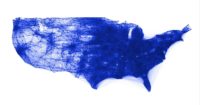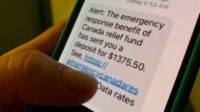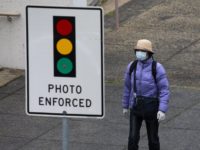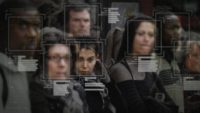TORONTO — Canadian officials are turning their attention to digital contact tracing to prevent the spread of coronavirus, a strategy experts warn may come with significant privacy concerns. Officials in Newfoundland and Labrador are the latest in Canada to suggest the use of voluntary contact tracing apps that would use cellphone data to monitor people’s movements and warn them of any contact with COVID-19 positive patients, eliminating an arduous task usually performed manually by public health departments. Citing examples from Singapore and South Korea — two countries actively engaged in…
Read MoreTag: Privacy
ACLU Outlines Privacy Concerns For Contact Tracing Tech | Engadget
As Google and Apple prepare to team up on surveillance tech to help track the spread of Covid-19, privacy watchdogs at the American Civil Liberties Union (ACLU) are urging the government and tech companies to take a tougher stance on privacy. The ACLU published a lengthy white paper outlining privacy concerns they say need to be taken into account in order for contact tracing tech to be effective. Apple and Google’s proposal would use bluetooth data to detect phone owners’ potential exposure to people who have tested positive for Covid-19.…
Read MoreApple And Google Are Building Coronavirus Tracking Tech Into iOS And Android | CNET
The two companies are working together, representing most of the phones used around the world. Two of the tech industry’s biggest players are working together to fight the coronavirus, announcing a new set of tools that could come to a majority of smartphones around the world. The new technology, outlined in white papers published by Apple and Google Friday, relies on Bluetooth wireless radio technology to help phones communicate with one another, ultimately warning people about people they’d come in contact with who are infected with the coronavirus. Apple and Google plan to…
Read MoreFacebook Begins Sharing More Location Data With COVID-19 Researchers And Asks Users To Self-Report Symptoms | The Verge
The company’s Data for Good program is expanding. Facebook is expanding a program that grants researchers access to data about movement patterns in an effort to help improve our understanding of the spread of COVID-19, the company said today. Data for Good, which uses aggregated, anonymized data from Facebook’s apps to inform academic research, will now grant access to three new maps for forecasting the disease’s spread and revealing whether residents of a given region are staying at home. The company will also prompt Facebook users to participate in a…
Read MoreEmail, Text Message Attacks Surge During COVID-19 Crisis | CBC News
Cybersecurity experts describe it as a perfect storm: employees working from home — away from their firm’s IT experts and sometimes without the protection of a corporate computer network — and hungry for information about a mysterious coronavirus. With the COVID-19 crisis as the backdrop, fraudsters appear to be redoubling their efforts to steal information or money from unsuspecting users, sending fake emails and text messages as bait, in a scheme known as phishing. In one scam, fraudsters pretend to be processing EI claims, preying on Canadians who’ve recently lost their jobs.…
Read MoreGovernments Could Track COVID-19 Lockdowns Through Social Media Posts | CNET
A research group scrapes more than 500,000 Instagram profiles in Italy to see if people abiding by the quarantine. The Italian government enforcing its nationwide lockdown measures to control the spread of the coronavirus outbreak. Your posts on social media have been harvested for advertising. They’ve been taken to build up a massive facial recognition database. Now, that same data could be used by companies and governments to help maintain quarantines during the coronavirus outbreak. Ghost Data, a research group in Italy and the US, collected more than half a…
Read MoreCoronavirus Pandemic Changes How Your Privacy Is Protected | CNET
Data protection officials around the world are loosening rules on how your data can be used during the COVID-19 outbreak. Privacy protections around the world are getting lifted during the coronavirus outbreak. As the coronavirus pandemic gets worse, privacy commissioners are lifting data restrictions for health officials to keep track of the outbreak. A review of policy changes around the world shows that data protection agencies are prioritizing lives over privacy, and it could be a sign of what’s to come for the US. In Hong Kong, the city’s privacy…
Read MoreHow Apps Secretly Spy On You With Third-Party Trackers | Digital Trends
The moment you install an app, it begins scavenging and pestering you for your data. It requests permissions to tap into your phone’s internals, asks you to register a handful of personal information — you know the drill. However, no matter how frugal and vigilant you are at each step, there’s still one way most apps end up covertly mining your data. Every app comes packaged with a range of what are technically called Software Development Kits (SDK). To understand these better, think of an app as a Lego house…
Read MoreRCMP Acknowledges Using Facial Recognition Technology, But Won’t Say Where | CBC News
The RCMP has for the first time acknowledged using controversial facial recognition technology that has raised privacy concerns, saying it was used in the Mounties’ efforts to crack down on online child sexual abuse. The force said it has used the technology in 15 child exploitation investigations over the past four months, resulting in the identification and rescue of two children. The statement also mentioned that “a few units in the RCMP” are also using it to “enhance criminal investigations,” without providing detail about how widely and where. “We are…
Read MoreGoogle Knows What You Look Like. Here’s What It Means And How To Opt Out | CNET
Google’s Face Match technology isn’t everywhere yet, but it’s always looking. Find out what’s happening with your face data and what you can do to stop it. Google’s largest smart display, the Google Nest Hub Max, includes a controversial feature that’s always watching. Face Match, the name Google calls the technology, keeps a digital eye out for faces passing by. When it recognizes yours, it displays content just for you: photos, messages, appointments and even how long of a commute you can expect. Read full story here: Google Knows What You Look…
Read More








